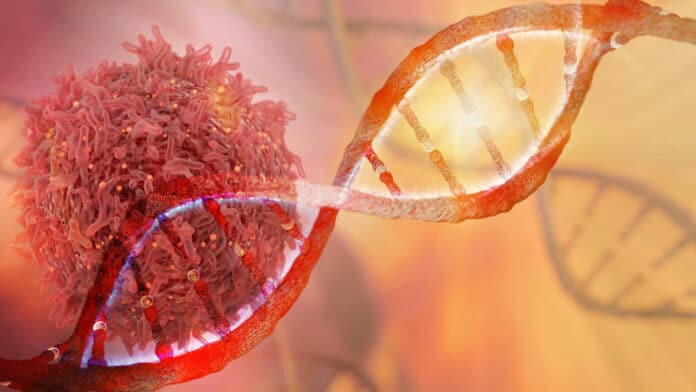A big group of scientists, led by experts at University of Southern California, found problems in 11 genes connected to terrible prostate cancer. They did the most significant study ever on prostate cancer genes, looking at the essential parts of our genetic code. They checked samples from around 17,500 guys with prostate cancer.
Doctors use genetic tests to determine how to treat some people with prostate cancer. These tests can help choose the best treatment and even tell family members if they might have a higher risk of getting prostate cancer.
This new study, published in a medical journal called JAMA Oncology, found new gene problems that make prostate cancer more dangerous. These gene issues aren’t part of the usual genetic tests. They also found that some genes on the regular tests are not linked to worse prostate cancer.
Corresponding author Christopher Haiman, ScD, holder of the AFLAC Chair in Cancer Research and professor of Population and Public Health Sciences at the Keck School of Medicine, said, “Very large studies are needed to inform the creation of gene panels used for testing. Some of the genes in these panels were based on small studies and were not associated with prostate cancer in our study. We also found evidence that other genes perhaps ought to be added. The results were definitive, but it’s clear that more work needs to be done to determine which genes oncologists should focus on in testing.”
Researchers studied prostate cancer genes in 17,500 patients. They looked at data from 18 U.S., European, and Australian studies. They took blood samples from these patients; some had severe prostate cancer, while others did not.
First, they looked at all the genes that make proteins in almost a third of the patients. Then, based on their first findings, they focused on a smaller group of 1,749 genes linked to cancer or seemed important.
Within this group, nearly 200 genes were connected to fixing DNA. When this DNA repair process doesn’t work well, it can lead to cancer.
The discovery of 11 genes with mutations linked to severe prostate cancer could lead to better treatment and prevention. One of these genes, BRCA2, is also associated with breast cancer. These genes and others already tested might help doctors personalize prostate cancer treatment and screening.
The research also revealed that some people with these gene mutations didn’t have severe cancer but might be at risk for it later. This could lead to earlier, more effective treatment.
However, two essential things to remember are that more research is needed because some rare mutations were not found in this study, and the findings might only apply to some, especially those from different backgrounds.
Haiman, co-leader of the USC Norris Cancer Center Cancer Epidemiology Program, said, “It will be important for similar efforts to occur in men of African ancestry. That’s very important. These genes and perhaps others may be important, so additional work must be done in other populations.”
In conclusion, this research opens new avenues for understanding and managing aggressive prostate cancer. It underscores the importance of genetics in determining treatment approaches. It highlights the potential for early interventions based on an individual’s genetic risk profile.
Journal reference:
- Burcu F. Darst, Ed Saunders, MRes, et al., Germline Sequencing Analysis to Inform Clinical Gene Panel Testing for Aggressive Prostate Cancer. JAMA Oncology. DOI: 10.1001/jamaoncol.2023.3482.
